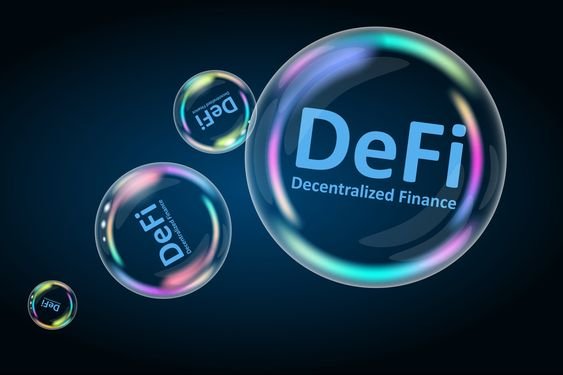Spark has officially launched its on-chain order book on Ethereum, marking a major advancement for decentralized finance (DeFi). Designed for professional, institutional, and advanced retail traders, Spark’s platform brings fast, efficient trading to the Ethereum ecosystem, catering to the demands of high-frequency and algorithmic trading. This move arrives as DeFi sees renewed interest, with traders seeking alternatives that combine speed, security, and transparency.
What is Spark’s On-Chain Order Book?
An order book is a digital list of buy and sell orders arranged by price levels, allowing traders to view where other users intend to buy or sell assets. Traditional order books on centralized exchanges or automated market maker (AMM) protocols have limitations, especially in terms of speed and transparency. Spark’s on-chain order book uses a Central Limit Order Book (CLOB) system, providing an alternative that enhances visibility, liquidity, and control.
With the CLOB system, traders have full access to order depth and liquidity data, which is essential for making informed decisions. Spark’s platform offers full transparency into all trading activities, helping users avoid issues like front-running and manipulation. Moreover, Spark prioritizes self-custody, giving users total control over their assets. This approach makes it an appealing choice for traders who value security and autonomy.
Addressing the Needs of High-Frequency Trading
High-frequency and algorithmic trading require a system that can handle rapid transactions without delays. Existing order book systems on centralized exchanges and AMMs often struggle with high-speed demands. In response, Spark built its CLOB system to meet the fast-paced requirements of professional traders.
With Spark’s new CLOB mechanism, users experience near-instant execution, which is critical for strategies that depend on precise timing. The system is optimized to handle large volumes and quick turnarounds, setting it apart from slower, traditional DeFi protocols. By offering this speed on Ethereum, Spark sets a new benchmark for order execution in the DeFi space.
Self-Custody and Security at the Core
One of Spark’s standout features is its commitment to self-custody. Unlike centralized exchanges where users relinquish control over their assets, Spark allows users to maintain complete ownership. This means traders don’t have to rely on third-party custodians, reducing risks associated with centralized control.
The platform’s self-custodial approach enhances security and aligns with the ethos of DeFi, where users control their funds. Spark’s protocol also minimizes front-running risks. Front-running, a common issue in crypto trading, occurs when other traders execute transactions based on advance knowledge of upcoming trades. Spark’s design mitigates this risk, giving users a secure environment to execute their trades without fear of manipulation.
Fuel Network’s Role in Spark’s CLOB System
Spark’s CLOB system operates on Fuel’s layer-2 (L2) network, which launched its mainnet on October 16. Fuel, a blockchain scaling solution, enhances Ethereum’s capacity, enabling faster and cheaper transactions. By deploying on Fuel’s L2, Spark can offer a high-speed, low-cost trading experience that benefits from Ethereum’s security while reducing transaction fees.
Fuel Network CEO Nick Sway expressed excitement over Spark’s launch on the L2 network. He emphasized that Spark aims to set a new standard for blockchain precision and scalability on Ethereum. The collaboration between Fuel and Spark combines Fuel’s layer-2 efficiency with Spark’s innovative trading solution, creating a powerful platform for DeFi traders.
How Spark’s On-Chain Order Book Stands Out
Several features set Spark’s order book apart from traditional and DeFi alternatives:
- Transparency: Full visibility into order depth and liquidity allows traders to make informed decisions.
- Efficiency: Optimized for high-frequency trading, the CLOB system ensures quick, seamless transactions.
- Self-Custody: Users retain control over their assets, prioritizing security and ownership.
- Reduced Front-Running: Spark’s design minimizes manipulation risks, creating a fairer trading environment.
These features make Spark an ideal choice for professional and institutional traders looking for security, speed, and transparency.
Impact on the Ethereum DeFi Ecosystem
Spark’s entry into the Ethereum ecosystem brings a new dimension to decentralized trading. By addressing issues that have long plagued DeFi, such as latency and lack of transparency, Spark’s platform could drive more traders to decentralized platforms. With Ethereum being the largest on-chain smart contract ecosystem, Spark’s CLOB system has the potential to attract high-volume traders looking for reliable on-chain solutions.
As DeFi adoption grows, users expect platforms that rival the speed and efficiency of centralized exchanges. Spark’s high-performance order book on Ethereum offers a much-needed upgrade, bridging the gap between traditional finance and blockchain-based finance.
Vitali Dervoed and Nick Sway’s Vision for Decentralized Trading
Vitali Dervoed, Spark’s CEO and co-founder, expressed confidence in the platform’s potential to redefine DeFi trading. According to Dervoed, Spark aims to give traders a professional, transparent environment that enables fast execution without compromising on security.
Fuel Network CEO Nick Sway supports this vision, emphasizing the importance of blockchain precision and scalability. By partnering with Fuel, Spark benefits from enhanced transaction throughput, which is crucial for handling large trading volumes. Together, Dervoed and Sway envision a future where Spark’s platform sets new standards for decentralized trading on Ethereum.
Advantages of Spark’s CLOB System
Spark’s CLOB system provides several key advantages over traditional DeFi platforms:
- Reduced Fees: Operating on Fuel’s L2 network allows Spark to reduce transaction costs significantly.
- Fast Execution: High-speed order processing caters to traders relying on quick execution.
- Professional Trading Environment: Designed with institutional traders in mind, Spark’s CLOB offers a level of sophistication uncommon in DeFi.
These advantages create a compelling reason for traders to consider Spark as a primary platform for DeFi trading. By integrating with Fuel’s L2, Spark eliminates many of the bottlenecks seen in other DeFi platforms, providing a faster, more cost-effective alternative.
The Future of Spark in DeFi
Spark’s entry into DeFi comes at an opportune time as decentralized finance experiences renewed interest. Traders increasingly seek platforms that combine the security of blockchain with the speed of traditional finance. Spark’s order book platform could drive a shift in how high-frequency traders engage with DeFi, making it possible to execute sophisticated strategies previously reserved for centralized exchanges.
Spark’s success on Fuel’s L2 network may inspire other DeFi projects to explore layer-2 solutions as a way to scale. Ethereum’s mainnet often faces congestion and high fees, making layer-2 solutions like Fuel an attractive alternative. Spark’s partnership with Fuel could be a model for future DeFi projects, demonstrating how scaling solutions can unlock new possibilities for decentralized finance.
Closing Thoughts: A New Standard in DeFi
Spark’s on-chain order book launch on Ethereum represents a leap forward for decentralized trading. By addressing the unique needs of high-frequency and professional traders, Spark sets a new standard in the DeFi landscape. The platform’s self-custodial design, coupled with full transparency and protection against manipulation, aligns perfectly with the principles of decentralized finance.
As Spark grows, its influence could extend beyond Ethereum, inspiring a broader shift toward on-chain order books in DeFi. The protocol’s collaboration with Fuel Network demonstrates the potential of layer-2 solutions in creating fast, scalable DeFi ecosystems. For traders seeking a secure, transparent, and efficient platform, Spark offers a glimpse into the future of DeFi, where decentralized systems can compete with the best of traditional finance.
Spark’s launch signals that decentralized finance is maturing, with platforms evolving to meet the demands of sophisticated traders. With its innovative CLOB system, Spark not only elevates DeFi standards but also paves the way for a more accessible and secure blockchain-based financial ecosystem.
ALSO READ: Detroit Embraces Cryptocurrency: Residents to Pay Taxes




